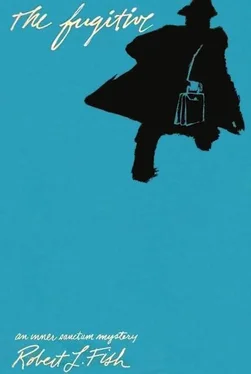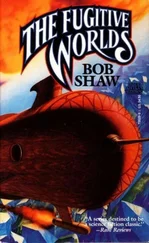Even the tiny striped umbrellas planted in staggered rows among the daily crop of sun bathers scattered like prop bodies after a battle scene looked as if they had not changed since the last morning he had gazed down upon them. Across the smokeless roofs of the apartment buildings that lined the sand expanse like stilted pickets on a curving fence, the rocky tower of Pão de Açúcar could be seen standing stark against the faded blue sky. Even the tiny cable strands that led to its majestic top seemed to be definable in the clear air of the hot afternoon.
Ari returned to his unpacking. He studied the neatly arranged contents of his leather bag and sighed deeply. Two weeks had passed since his arrival in Brazil; two marvelously dreamless weeks even free of the terrifying heart palpitations; two weeks into which had been crowded more adventure and more excitement than he had known in his life. He stood staring blankly at the challenge of his packed bag. In two weeks he had been kidnapped twice, had seen the sights of Rio, had enjoyed Carnival in São Paulo. What could you know of these things? he asked the waiting bag irritably. All you do is sit there demanding to be emptied.
His restlessness finally overcame him; he left the silent bag and returned to the more satisfying window. But the two weeks were not fruitless, he reflected, searching his mind for some fount of satisfaction to ease his tightened nerves.
In these two weeks you have uncovered the principal limbs of this rotting tree; it is only necessary to identify the main root stem to complete the job. So why be nervous? Why be restless? The time for nervousness was two weeks ago, now is almost the time for triumph. And that soon, very soon. The changeable hotel manager, Herr Mathais — no longer the elastic-faced mine host, but suddenly transformed into a sharp, positive personality — had informed him only that day, in a brisk, businesslike manner, that his meeting with the head of the Brazilian organization was in the immediate process of being realized, and that he would be informed as soon as the details were arranged.
He stared across the blue-green of the ocean before him, analyzing his restlessness.
Can it be nostalgia? he wondered. Is it possible to feel nostalgia for a place where you are? Because you know you must soon leave it? Is this possible? His eyes swept the horizon, coming to rest on the hazy summit of Sugar Loaf. One thing, though, I promise, he said to himself. Before I leave Brazil, I shall manage in some manner to see the view from your summit; that will be my farewell to this lovely place. There on your top, before I leave, I shall cleanse myself of the unhappiness that somehow has followed me throughout this masquerade. When this is finished, it is there that I shall properly say goodbye to the lush grandeur and peaceful beauty of this city.
He sighed and stared back over his shoulder at his still-unpacked bag. Stay there, he said in sudden resolution to his shirts and socks and underwear, to his handkerchiefs and ties, to his extra suit and extra shoes. Stay there and keep yourself company. You are somehow something out of the past, and I’ll unpack you when I’m good and ready.
He looked back out of the window, surprised once again at the depth of his restlessness. Am I nervous? he thought. I should actually be happy; the conclusion of this farce is near, we are coming close to the answer that induced this idiotic imposture, this crazy adventure. Am I afraid? He thought of Da Silva off in a foreign country and felt a pang of loneliness sweep him, a faint shock of panic. Yes, he thought, almost with satisfaction at the revelation; yes, I am afraid. But of what I do not know. But I am afraid!
The thought, oddly enough, seemed to calm him instantly, and he returned at once to his bag, dipping into it resolutely. Without an indication of his previous perturbed state of mind, he carefully placed each item in its place in the dresser drawers, and hung his suit neatly on a hanger in the narrow closet.
Eight floors below, in his private apartment on the second floor, Herr Mathais was desperately attempting to come to some arrangements with two people who seemed intent upon purposefully misunderstanding him. His temper, normally under the good control so necessary to hotel managers, was wearing a bit thin, but he seemed to realize that this was no time to explode.
“It will be only for one hour,” he repeated, certain in his mind that he had made the same statement at least forty times before. “One hour. At the most.”
The little man facing him, dressed in a blue uniform that had long since seen its best years, continued to hug the edge of his seat in the manner of one who had dropped in for a brief visit and should have been on his way long before. He also seemed doubtful as to whether or not his interlocutor was capable of understanding simple Portuguese. “But the Senhor does not comprehend. It is a public place. Private parties there are forbidden.”
“But you close,” Mathais said patiently. “You close sometime. Sometime you have to close. We only wish to go there after you close.”
“Ah!” said the man across from him, who at this point might properly have been called his opponent, if not his adversary. He had immediately noted the obvious flaw in this argument and had pounced upon it at once. “But afterwards, you see, you cannot go. Because afterwards, we are closed.”
Mathais ground his huge teeth together, but maintained an outward calm, albeit a trifle shaky. He thought a moment and decided to try another tack.
“You open at what time?” he asked slowly, speaking with extreme clarity.
The other considered this carefully, and apparently finding nothing incriminating in answering, nodded thoughtfully.
“Quite early,” he said, but added sadly, “of course before we open, no one is allowed.”
“I understand,” Mathais said heavily. “Now; what time do you close?”
“Quite late.”
“The time,” Mathais said, almost gritting his teeth. “What time do you close? The exact hour?”
The second man, who had sat throughout this duel in silence, now decided to come to his partner’s aid. “We close at midnight,” he said.
Mathais gave a vast sigh of relief. “You close at midnight. Then, if I wished to come there with my friends after midnight, there would be no one there.” He quickly raised his hand to forestall the inevitable. “Yes. I know it is closed after midnight. But we would only require someone to run the mechanism — the car. And we would pay for this. We would pay money for someone to stay after hours to run the car.”
The magic word “money” seemed to have the necessary effect; or at least it had some effect. The two fell into a huddled conference, jabbering softly to each other. Mathais waited patiently, convinced that he was on the right track. One might have imagined that his years in Brazil would have taught him better, but he had always been of a basically optimistic nature. The conference finally ended; the first turned back to him with a tragic face. “Senhor. It is not possible. After midnight we are closed.”
A lesser man might have broken; Strauss, Mathais reflected, would have stalked from the room, or lain down upon the floor and shed tears. He, however, was made of stronger stuff. It suddenly occurred to him where he had been making his mistake, and he immediately took steps to rectify it.
“Fifty conto,” he said, staring hypnotically into the eyes of the man seated so precariously before him.
“I beg your pardon?” It was startled, but definitely interested.
“Fifty conto. Fifty thousand cruzeiros.” His eyes flickered across to the other, and he nodded his head slightly in recognition of the presence of the second. “Fifty conto each, that is, of course. A total of one hundred conto. One hundred thousand cruzeiros.”
Читать дальше












